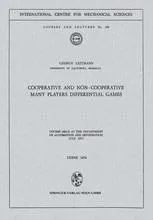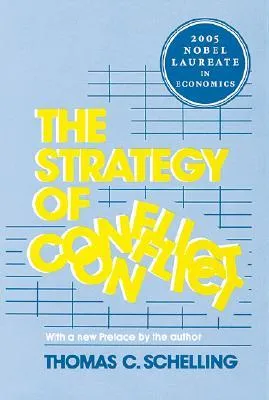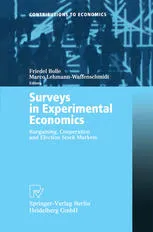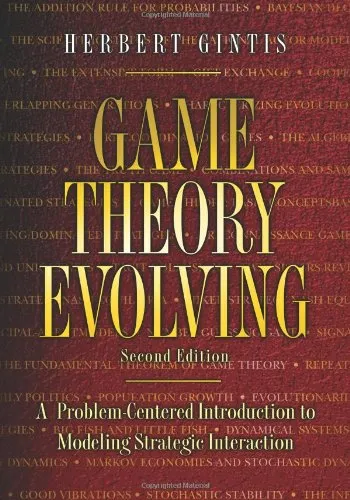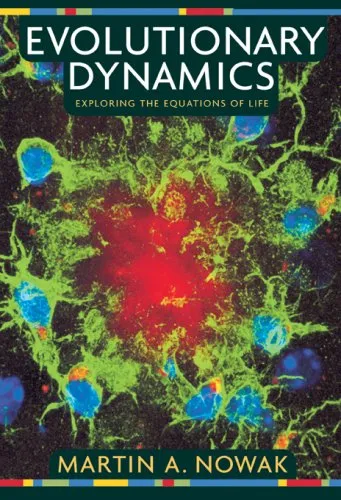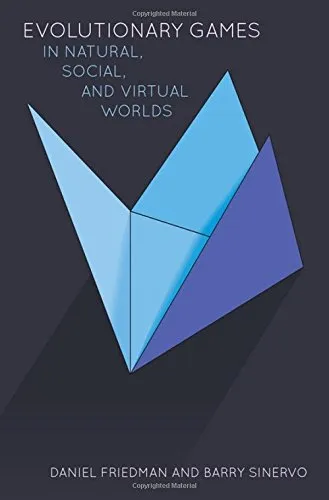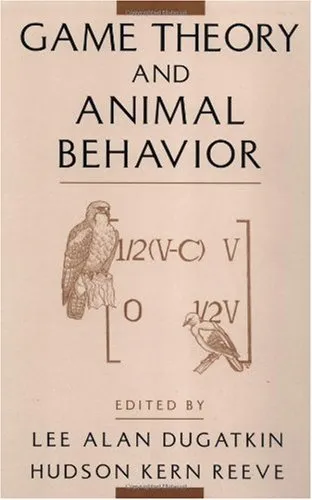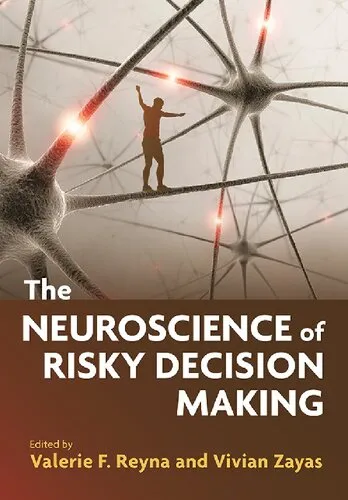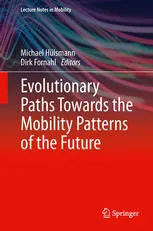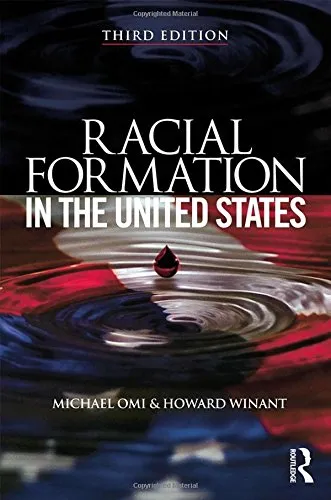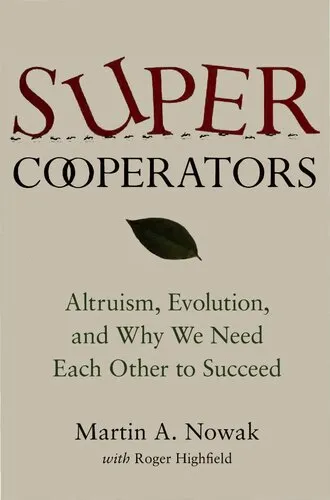Community Under Anarchy Transnational Identity and the Evolution of Cooperation
4.0
بر اساس نظر کاربران

شما میتونید سوالاتتون در باره کتاب رو از هوش مصنوعیش بعد از ورود بپرسید
هر دانلود یا پرسش از هوش مصنوعی 2 امتیاز لازم دارد، برای بدست آوردن امتیاز رایگان، به صفحه ی راهنمای امتیازات سر بزنید و یک سری کار ارزشمند انجام بدینکتاب های مرتبط:
مقدمهای بر کتاب "Community Under Anarchy: Transnational Identity and the Evolution of Cooperation"
کتاب "Community Under Anarchy: Transnational Identity and the Evolution of Cooperation" یکی از آثار تأثیرگذار در زمینه روابط بینالملل و تئوریهای هنجاری است که توسط بروس کرونین نگاشته شده است. این کتاب به بررسی پدیده همکاری میان دولتها در نظام آنارشیک بینالمللی میپردازد و مفهوم "Community" یا جامعه فراملی را محور بحث خود قرار میدهد. در ادامه به خلاصهای جامع از این اثر، نکات کلیدی، نقل قولهای برجسته و دلایل اهمیت آن پرداخته میشود.
خلاصه کتاب
در این کتاب، بروس کرونین به چالشی اساسی در تئوری روابط بینالملل میپردازد: چگونه همکاری میان دولتها در یک محیط آنارشیک که فاقد یک مرجع عالی است، به وقوع میپیوندد؟ او استدلال میکند که هنجارها و هویتهای فراملی، نقش اساسی در شکلگیری جوامع همکاریمحور دارند. این هنجارها با گذشت زمان، مکانیزمهای جدیدی برای مدیریت اختلافات و ایجاد همکاری میان دولتها شکل میدهند.
کرونین با استفاده از مثالهای تاریخی و مطالعه تجربی، نشان میدهد که تعاملات مکرر میان دولتها، به تقویت احساس تعلق به یک "جامعه فراملی" منجر میشود. این کتاب به طور خاص بر نقشی که هویتهای مشترک فرهنگی، سیاسی و اجتماعی در تقویت همکاری بینالمللی ایفا میکنند، تأکید میکند. برخلاف نظریههای صرفاً واقعگرایانه یا لیبرالی که اصول همکاری را بیشتر بر مبنای منافع مادی میدانند، این اثر به ابعاد هنجاری و معنوی همکاری نیز میپردازد.
نکات کلیدی
- نظام آنارشیک بینالمللی لزوماً مانعی برای همکاری نیست بلکه میتواند از طریق هنجارهای اجتماعی تغییر کند.
- هویتهای فراملی شکلگرفته از تعامل دولتها به ایجاد اعتماد و همگرایی منجر میشوند.
- Community فراتر از مرزهای صرفاً جغرافیایی یا سیاسی است و به سازوکارهای اجتماعی و فرهنگی اشاره دارد.
- پدیدههایی مثل اتحادهای بلندمدت یا سازمانهای بینالمللی نمادی از این جوامع فراملی هستند.
- نقش تاریخ و تجربه مشترک میان دولتها در ایجاد و تقویت همکاری بینالمللی اهمیت ویژهای دارد.
نقلقولهای برجسته از کتاب
"Anarchy is not the absence of order, but the framework within which communities define their own rules of engagement."
"While material interests drive short-term alliances, it is the normative bonds that sustain long-term cooperation."
"Identity is the unseen thread that ties states together in a community of mutual understanding."
چرا این کتاب اهمیت دارد؟
کتاب "Community Under Anarchy" اهمیتی ویژه در ادبیات روابط بینالملل دارد زیرا برخلاف چارچوبهای محدودکننده نظریات سنتی، به بعد هنجاری همکاری میان دولتها میپردازد. این کتاب به دانشجویان، پژوهشگران و سیاستگذاران کمک میکند تا از منظر تازهای به چرایی و چگونگی همکاریهای بینالمللی نگاه کنند. در دنیای امروز که همکاری میان دولتها اهمیت فزایندهای یافته است، مطالعه این اثر میتواند به درک بهتر پیچیدگیهای روابط بینالمللی و یافتن راهحلهایی برای چالشهای جهانی کمک کند.
این کتاب برای هر کسی که به درک عمیقتر از نقش هویت، هنجارها و جوامع در ساختارهای آنارشیک بینالمللی علاقهمند است، ضروری قلمداد میشود. همچنین، این اثر با ترکیب تئوری و تجربه، درک جامعی را ارائه میدهد که میتواند راهنمایی برای تحلیل تحولات پیچیده در جهان معاصر باشد.
Welcome to "Community Under Anarchy: Transnational Identity and the Evolution of Cooperation"
"Community Under Anarchy: Transnational Identity and the Evolution of Cooperation" explores one of the most compelling and relevant questions in international relations: How does cooperation emerge, persist, and evolve between states within an anarchic international system? In this insightful book, I delve into the dynamics of state behavior, examining the transformative role of transnational identities in fostering cooperation even in a world often characterized by conflict and competition.
Rooted in an interdisciplinary approach, the book combines perspectives from political science, sociology, and international relations theory to bridge the gap in our understanding of collaboration under seemingly adverse conditions. The concept of anarchy in international relations typically implies a lack of overarching authority, resulting in a world where self-help and survival dominate. Yet, contrary to this traditional premise, the evolution of community identities has enabled states to collaborate despite the challenges posed by an anarchic system. By examining historical cases, theoretical frameworks, and contemporary implications, the book addresses fundamental questions about collective identity, social norms, and mutual trust in the global arena.
Detailed Summary of the Book
The book opens with a strong critique of the conventional realist perspective that views global politics as inherently conflictual due to the anarchic structure of the state system. I argue that while structural anarchy is a significant feature, it is not the only factor in determining state behavior. Introducing the concept of transnational identity, the book highlights how shared values, norms, and connections between states can create a sense of community, which in turn fosters cooperation.
Using a combination of historically grounded case studies and theoretical analysis, I demonstrate how communities under anarchy can emerge and remain stable. Specific examples include the European integration process and the role of shared religious, cultural, or ideological ties in facilitating collaboration among states. The evolution of the European Union (EU), for example, showcases how previously warring nations established enduring frameworks of cooperation, anchored by shared identities and mutual interests.
Each chapter builds upon this central premise, exploring how communication, trust-building, and mutual recognition of shared goals contribute to the formation of transnational communities. In contrast to strictly utilitarian arguments, the book argues that these communities are not simply transactional but also rooted in emotional and social bonds that shape state behavior over time.
Key Takeaways
- Anarchy in the international system does not eliminate the possibility of cooperation; instead, it sets the stage for innovative and resilient forms of collaboration.
- Shared identities, rooted in history, culture, and ideology, are crucial to the development and maintenance of long-term cooperation between states.
- The book highlights the significance of trust-building and normative frameworks in overcoming the inherent challenges posed by structural anarchy.
- By analyzing specific case studies, the book presents a comprehensive argument that transnational communities are not just theoretical constructs but observable realities with profound implications.
Famous Quotes from the Book
"The notion of anarchy, while traditionally viewed as a barrier to cooperation, can paradoxically provide the conditions necessary for the emergence of transnational communities."
"States do not operate in isolation—they are embedded in networks of shared values and social norms that redefine their interests and actions."
"Trust, once built, is the foundation upon which the edifice of international cooperation rests."
Why This Book Matters
In an era of increasing global interdependence, understanding the dynamics of cooperation under an anarchic system is more important than ever. "Community Under Anarchy" offers a fresh perspective that challenges traditional assumptions about international relations and provides valuable insights into the construction of peaceful and cooperative state relations.
The book matters because it sheds light on how shared identities and norms can drive global cooperation, even among states with a history of mistrust or conflict. Policymakers, scholars, and students alike will find value in its analysis, particularly as they search for ways to address pressing global challenges like climate change, terrorism, and economic instability. By demonstrating that cooperation is not only possible but also sustainable under anarchy, this book offers hope and guidance for a more collaborative international order.
دانلود رایگان مستقیم
شما میتونید سوالاتتون در باره کتاب رو از هوش مصنوعیش بعد از ورود بپرسید
دسترسی به کتابها از طریق پلتفرمهای قانونی و کتابخانههای عمومی نه تنها از حقوق نویسندگان و ناشران حمایت میکند، بلکه به پایداری فرهنگ کتابخوانی نیز کمک میرساند. پیش از دانلود، لحظهای به بررسی این گزینهها فکر کنید.
این کتاب رو در پلتفرم های دیگه ببینید
WorldCat به شما کمک میکنه تا کتاب ها رو در کتابخانه های سراسر دنیا پیدا کنید
امتیازها، نظرات تخصصی و صحبت ها درباره کتاب را در Goodreads ببینید
کتابهای کمیاب یا دست دوم را در AbeBooks پیدا کنید و بخرید
1334
بازدید4.0
امتیاز0
نظر98%
رضایتنظرات:
4.0
بر اساس 0 نظر کاربران
Questions & Answers
Ask questions about this book or help others by answering
No questions yet. Be the first to ask!


